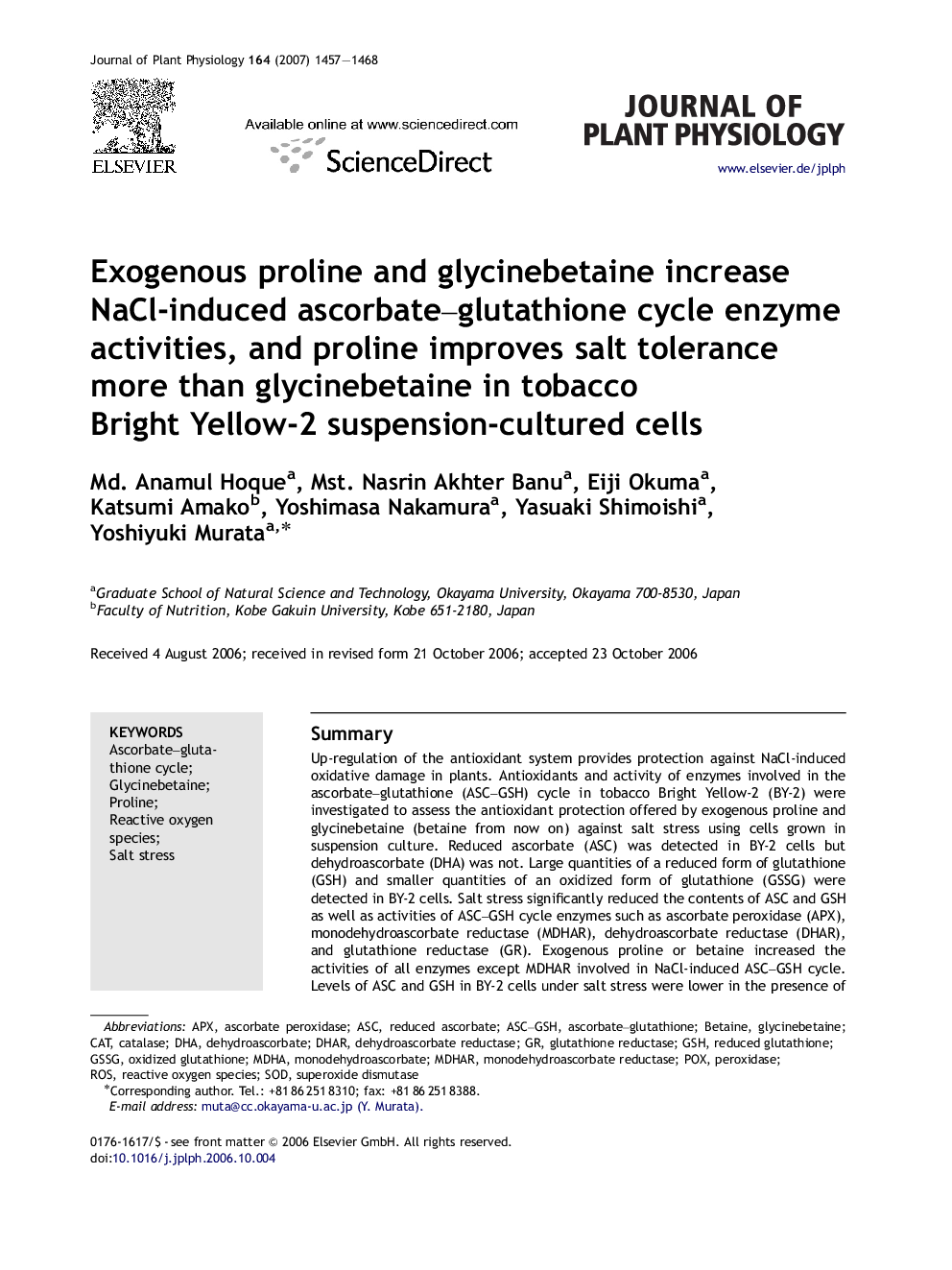| کد مقاله | کد نشریه | سال انتشار | مقاله انگلیسی | نسخه تمام متن |
|---|---|---|---|---|
| 2057672 | 1075909 | 2007 | 12 صفحه PDF | دانلود رایگان |

SummaryUp-regulation of the antioxidant system provides protection against NaCl-induced oxidative damage in plants. Antioxidants and activity of enzymes involved in the ascorbate–glutathione (ASC–GSH) cycle in tobacco Bright Yellow-2 (BY-2) were investigated to assess the antioxidant protection offered by exogenous proline and glycinebetaine (betaine from now on) against salt stress using cells grown in suspension culture. Reduced ascorbate (ASC) was detected in BY-2 cells but dehydroascorbate (DHA) was not. Large quantities of a reduced form of glutathione (GSH) and smaller quantities of an oxidized form of glutathione (GSSG) were detected in BY-2 cells. Salt stress significantly reduced the contents of ASC and GSH as well as activities of ASC–GSH cycle enzymes such as ascorbate peroxidase (APX), monodehydroascorbate reductase (MDHAR), dehydroascorbate reductase (DHAR), and glutathione reductase (GR). Exogenous proline or betaine increased the activities of all enzymes except MDHAR involved in NaCl-induced ASC–GSH cycle. Levels of ASC and GSH in BY-2 cells under salt stress were lower in the presence of proline or betaine than in the absence of proline or betaine whereas there was no difference in redox status. Proline proved more effective than betaine in maintaining the activity of enzymes involved in NaCl-induced ASC–GSH cycle. Neither proline nor betaine had any direct protective effect on NaCl-induced enzyme activity involved in the antioxidant system; however, both improved salt tolerance by increasing enzyme activity. The present study, together with our earlier findings [Hoque MA, Okuma E, Banu MNA, Nakamura Y, Shimoishi Y, Murata Y. Exogenous proline mitigates the detrimental effects of salt stress more than exogenous betaine by increasing antioxidant enzyme activities. J Plant Physiol 2006;164:553–61.], suggests that proline offered greater protection against salt stress than betaine did because proline was more effective in increasing the activity of enzymes involved in the antioxidant system.
Journal: Journal of Plant Physiology - Volume 164, Issue 11, 9 November 2007, Pages 1457–1468